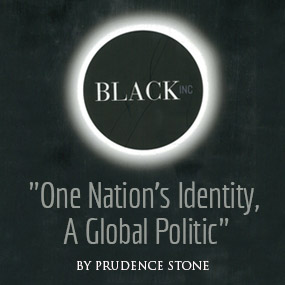NZ Security Expert – ISIS Positioned to Develop Chemical Weapons
In the course of its Blitzkrieg in northern Iraq, ISIS captured the Al Muthanna complex, which contains remnants of Saddam Hussein’s chemical weapons stock, buried in underground concrete bunkers and left undestroyed by American and UNSCOM forces, according to a report by Bob Rigg, Wellington-based international chemical weapons expert in a column in OpenDemocracy. US State Department and other government sources quoted in the Wall St Journal confirmed that these chemical weapons included sarin, mustard gas, and the nerve agent VX.
“Non-state entities are now showing that chemical weapons will continue to be a threat to international peace and security,” says Bob Rigg, former senior editor, Organisation for the Prohibition of Chemical Weapons based in The Hague, now with 190 member states.
Rigg cited testimony by the head of US intelligence to the US Senate in 2006 regarding the Al Muthanna chemical remnant, showing that ISIS now has access to significant quantities of mixed and unmixed chemical agents. “Given its formidable resources, it clearly has the capacity to convert these into chemical weapons. ISIS will certainly need some time to harness the full potential of these chemical weapons for use in its military campaigns.” The head of US intelligence emphasised that, although these old and abandoned chemical weapons are degraded, “the agent remaining in the weapons would be very valuable to terrorists and insurgents”, says Bob Rigg.
“ISIS is now widely recognised as being an extremely well-organised extremist organisation that even publishes annual reports detailing each year’s achievements in terms of bombings, assassinations, improvised explosive devices planted and hundreds of radical prisoners freed,” says Rigg. “It has many Middle Eastern donors with deep pockets. Its bank balance is currently estimated at US $2 billion.”
“Iraq, Syria and Eastern Europe contain a number of chemical weapons experts, at least some of whom may be open to offers of lucrative employment in the field of applied chemical weapons research. It is a real possibility that ISIS is at this moment actively aspiring to add chemical weapons to its repertoire of terror. Perhaps more than any other weapon of mass destruction, chemical weapons can terrorise entire populations.”
Until now, says Bob Rigg, the West has maintained, in the face of convincing evidence to the contrary, that extremist groups in the Middle East (including its former allies in Syria) were unable to produce chemical weapons. Al Qaeda in Iraq has been shown to have produced chemical weapons very efficiently, while al Nusra in Turkey was in possession of a significant quantity of sarin.
Bob Rigg is former senior editor, Organisation for the Prohibition of Chemical Weapons and former chair, NZ National Consultative Committee on Disarmament. He is a freelance researcher and writer specialising in nuclear issues, the Middle East, Central Asia, and US foreign policy.
Original story published 30 June, 2014 on OpenDemocracy














